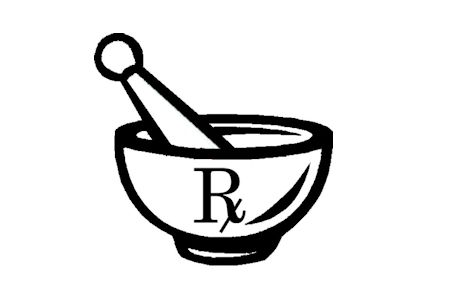Ask the Pharmacist
Q: I have started a new job that requires me to undergo drug-testing in order to keep it. I understand that there are certain medications that may cause me to have a false positive test. Can you tell me what I need to avoid?
A: Urine drug-screening is becoming a much more common practice for many reasons. Not only is it used by many workplaces in order to increase the safety of everyone involved, but it is also becoming increasingly used to monitor for patient compliance (i.e. that patients are taking a drug in the amount that they are supposed to be), to detect drug abuse, ensure fairness in athletic events, and sometimes assess unknown drug ingestion in the emergency department.
The most commonly used test is what is known as the immunoassay. Its frequency of use is due to its low cost, simplicity and the ability to get results rapidly. These tests use antibodies that are able to detect specified substances above a minimum level.
The challenge with these tests is that they are not very specific for the particular drug being looked for and, as such, there is potential for other chemicals to cause a false positive reading if the molecular structures are similar enough.
Ideally, in these cases, a second type of test, such as gas chromatography-mass spectrometry or high-performance liquid chromatography which are more accurate, would then be run.
Unfortunately these tests are more costly and take longer to perform so there is no guarantee they will ever be performed to exonerate the potentially accused offender. Therefore, avoiding factors that could put your test in jeopardy should be a priority as misinterpretation of results could result in an unjustified loss of a job, potential criminal charges, disqualification from a sporting event, loss of trust from a heath care provider or improper medical treatment.
Many of the medications that can cause false positives are antidepressants. The drug, sertraline (Zoloft), has been reported to cause false positives for benzodiazepines (drugs like Ativan and clonazepam) and LSD, while fluoxetine (Prozac) , trazodone (also used as a common sleeping pill) and bupropion (Zyban and Welbutrin) have been reported to cause false positives for amphetamines and LSD.
Venlafaxine (Effexor) has had numerous reports of causing false positives for PCP results as well. Almost all of the tri-cyclic antidepressants (amitriptyline, nortriptyline), which are commonly taken for sleep or nerve pain, can also cause recipients to screen positive for such illicit drugs as LSD and amphetamines.
Alternatives to the antidepressants, which have not yet been linked to false positives, include citalopram, escitalopram and paroxetine. These drugs may or may not work just as well as an antidepressant for you, so changing to these should be a carefully thought-out decision.
Safe alternatives for treating nerve pain include the drugs, duloxetine, gabapentin and pregabalin, whereas those looking to avoid trazodone for sleep could try mirtazepine.
The class of drugs known as antipsychotics (which are commonly used in people who do not suffer from psychosis and include such pills as risperidone, quetiapine and aripiprazole) have been known to lead to false positives as well.
If you cannot take that chance, other drugs from that family, that might be useful alternatives, include olanzapine, lurasidone or ziprasidone. The anti-epileptic drugs (that are also used in bi-polar patients to stabilize mood swings), lamotrigine and carbamazepine, have on occasion been blamed for faulty LSD results.
Amongst other types of prescription drugs, even such benign families as the antibiotics (in particular levofloxacin and ofloxacin which are linked to false positives for opioids), proton pump inhibitors (like pantoprazole which is used to reduce stomach acid) and antiemetics (drugs which treat nausea and vomiting), can confuse the tests that you need to pass.
Sadly, it is not only prescription drugs you need to weary of when your job or future treatment depends on passing a screening test. Numerous over-the-counter type (OTCs) drugs and herbals are listed as possible contributors to false positive tests as well.
Amongst OTCs implicated, are the older antihistamines (diphenhydramine and doxylamine), anti-inflammatory drugs (including ibuprofen and naproxen), the cough suppressant dextromethorphan (or DM as it is commonly known) and the heartburn drug, ranitidine.
Herbal remedies listed, include poppy seeds and hemp, perhaps not too surprisingly in either case.
The point here is not to have you memorize this list or leave serious (or even not so serious) medical conditions untreated due to fear of unintended consequences. Instead, it is to emphasize that with a little communication with your physician and pharmacist, problems such as the ones listed at the beginning of this article, can be avoided by first trying alternative drugs that will not cross react with the various tests that are out there.
For more information about this or any other health-related questions, contact the pharmacists at Gordon Pharmasave, Your Health and Wellness Destination. Also check the website at www.gordon-pharmasave.com/ and the Facebook page at www.facebook.com/GordonPharmasave/?fref=ts
 Written By
Written ByNo bio for this author.

Related Stories
No related stories.